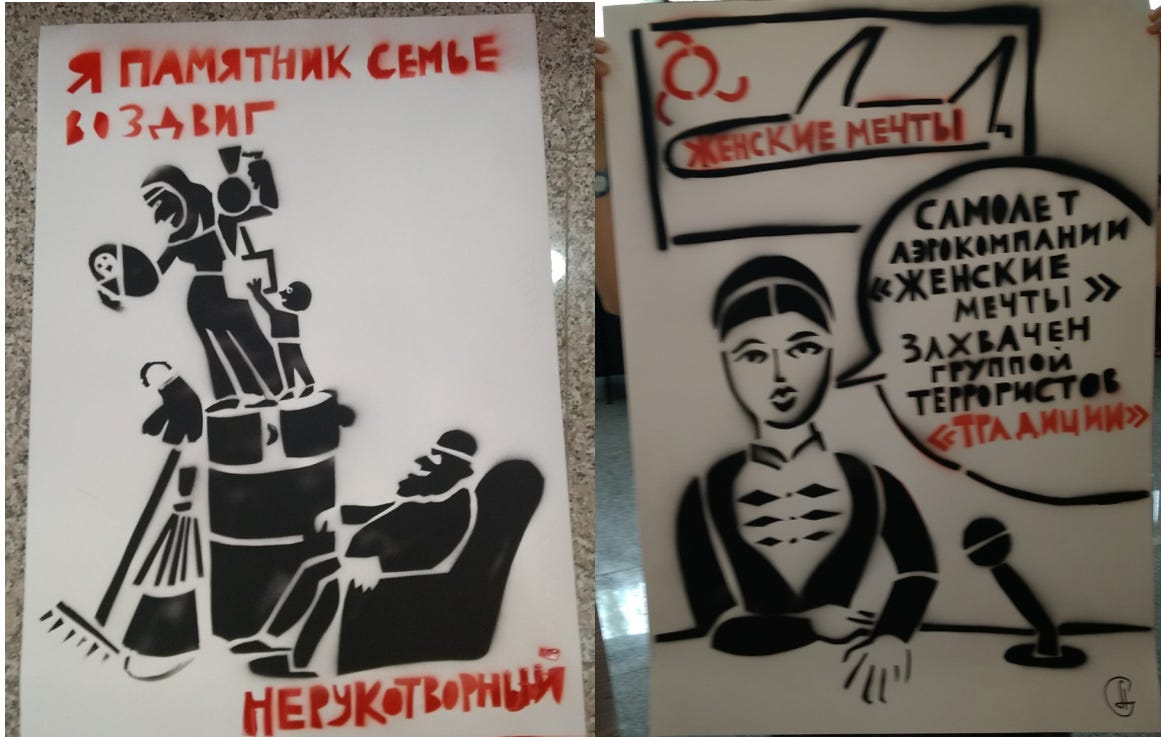So why have mass street protests in Ukraine, Georgia, Kyrgyzstan, Armenia resulted in a change of government, while comparatively massive and determined protest movements in other post-Soviet states left ruling powers intact?
The following is necessarily a condensed version of protests, uprisings and “revolutions” in the post-Soviet space since 1991, but it goes something like that:
- these revolutions have succeeded only where political power is fragmented or distributed, where there are well-established, competing political camps of significant power
- security and law enforcement services aren’t defeated or scattered in these revolutions, they just choose to switch their allegiances, to one of those alternative well-established political camps of point 1.
Ordinary Russians aren’t rising up in large numbers, because none of the usual conditions that trigger such events are present. (No, waging a war of aggression isn’t one of those conditions.)
The hyper-mobilized underground of routine protesters and the anti-war movement have been lying low in recent months, because they know there is no theory of change that ends with Putin no longer in charge. They are choosing self-preservation, although from what I can see, it’s not so much a choice as being forced onto them.
Almut Rochowanski
Thoughtful criticism of some popular talking points about Russia, questions endlessly repeated on Twitter about why Russians aren’t out in the streets protesting the war and overthrowing their government, inevitably arriving at the conclusion that they’re lazy, apathetic, cowardly, disorganized and incompetent
. The actual reason, as laid out here and elsewhere, is how Putin systematically dismantled or coopted competing political camps to remove any viable alternative to his regime. Similar conditions explain the failure of protests against Lukashenko in Belarus in the summer of 2020. And while recurring mass movements in Kyrgyzstan and Ukraine have successfully toppled governments, they didn’t achieve core goals of greater social and economic justice.

Personally, I think this dynamic applies to some extent in countries where authoritarian leaders have managed to stay in power throughout several election cycles, like Hungary and Turkey. Despite an active opposition, building coalitions to challenge the established ruling parties, the voting population doesn’t quite perceive this opposition as a practical alternative to the ‘safe and stable’ leader. The fear is that these large and diverse coalitions would not be able to govern properly and would devolve into constant bickering and even break up, leading to political instability and early elections – why go through the trouble of installing a new government, only to revert to the old one in one-two years’ time?
The recent Wagner march on Moscow, which kept us breathlessly watching events unfold on a Saturday, was almost a fast-forward recap of misguided concepts about Putin’s rule: countless people confidently shouting that ‘oh, this time it’s really over for Putin!’ and cheering for Prigozhin despite his terrible record of atrocities. As for the reaction of the Russian population, I doubt most even heard about the failed putsch until after it was already defused – with Russian media subservient to Putin, the West certainly saw more coverage of the events, although that doesn’t translate to a better understanding of what happened or which medium-term consequences it will cause.
Plot twist: Prigozhin was approached by the US to do a coup in Russia for billions of dollars. He tells Putin about it, Putin agrees. They keep the money.
— Not Jerome Powell (@alifarhat79) June 24, 2023
On one hand Putin is left with an additional problem on his plate, how to deal with Prigozhin and the fighters loyal to him – a problem of his own making. But the general population doesn’t regard Prigozhin as a desirable leader and could rally behind Putin only to avoid destabilization and fearing a civil war. As for the war in Ukraine, the most likely scenario is that Putin will double-down on military operations to dismiss criticism that the war is going badly and to mask domestic weakness – which in turn will push any end to hostilities further away…
Post a Comment